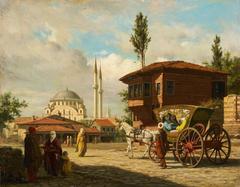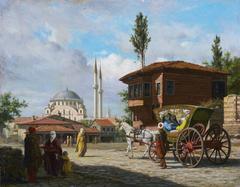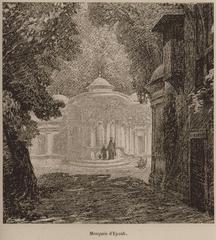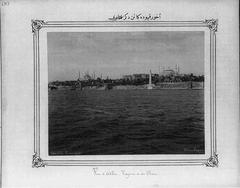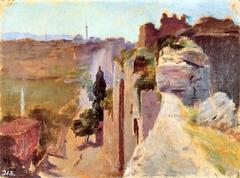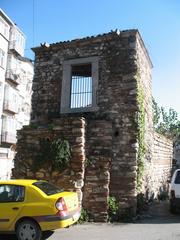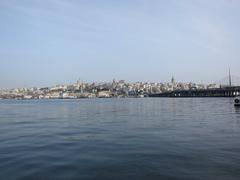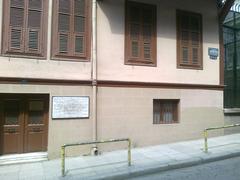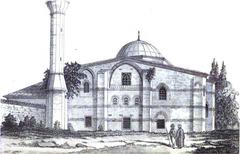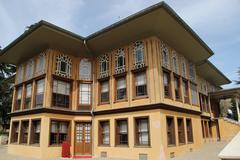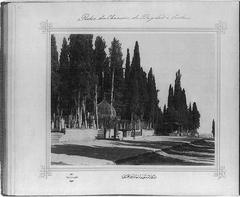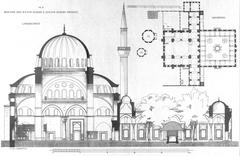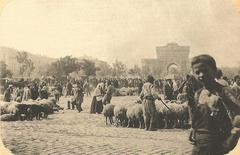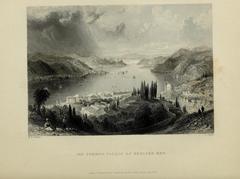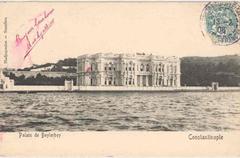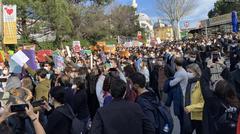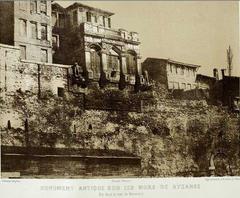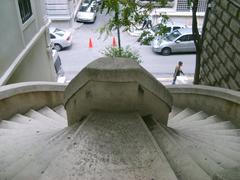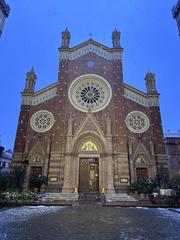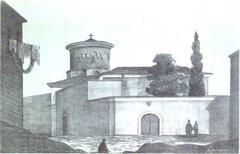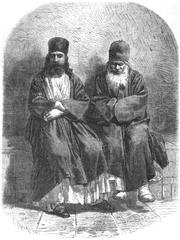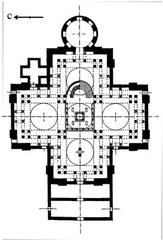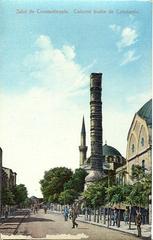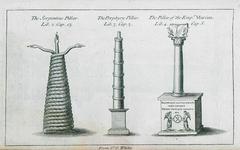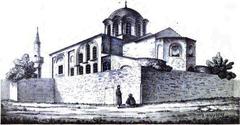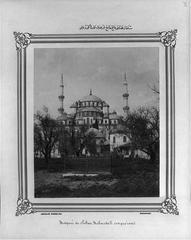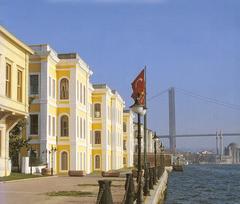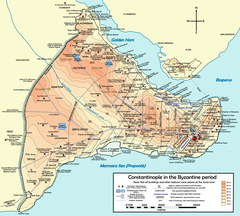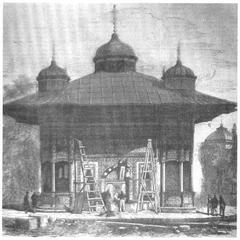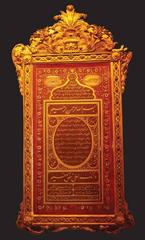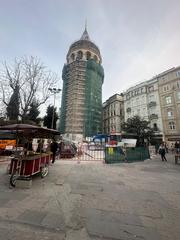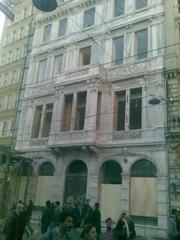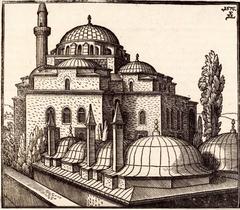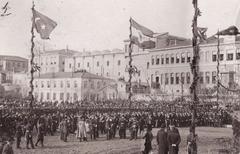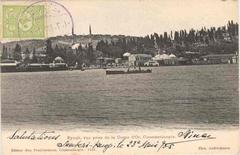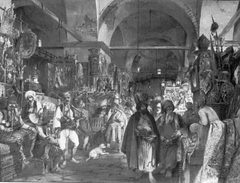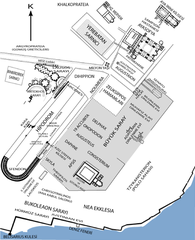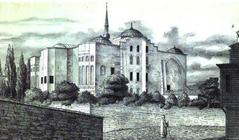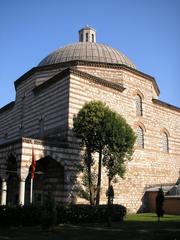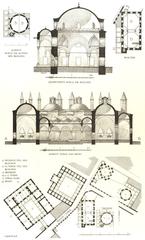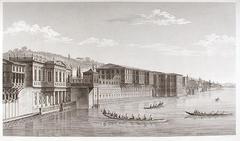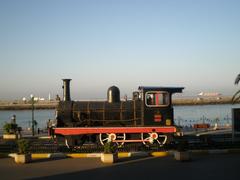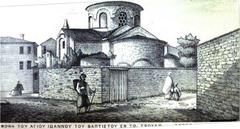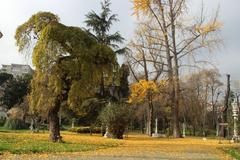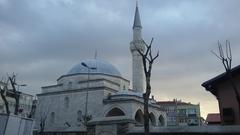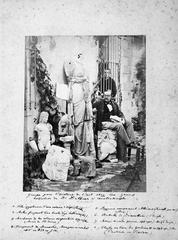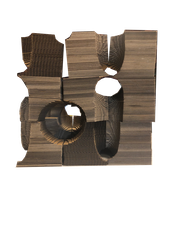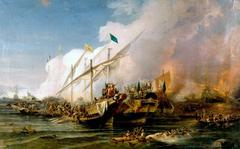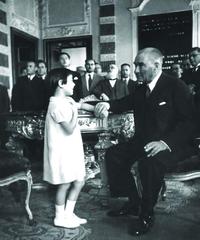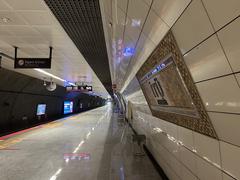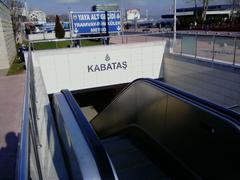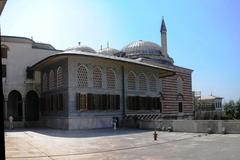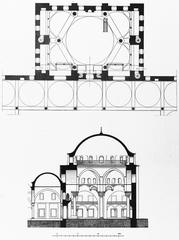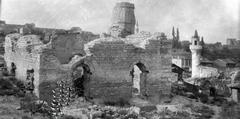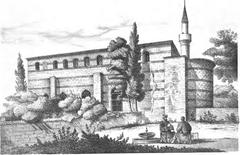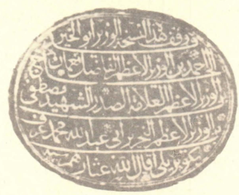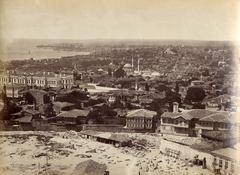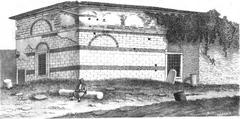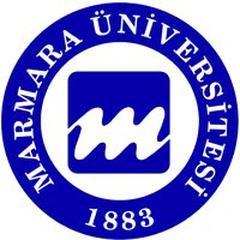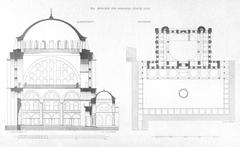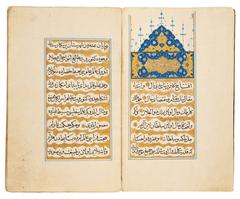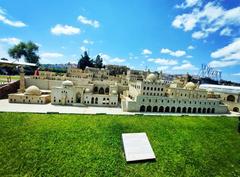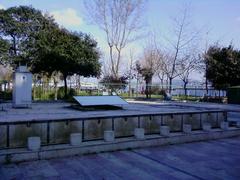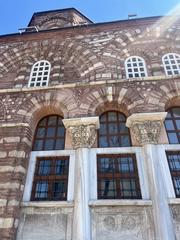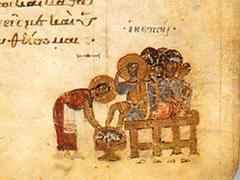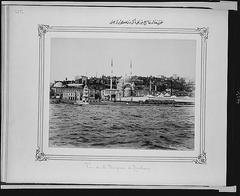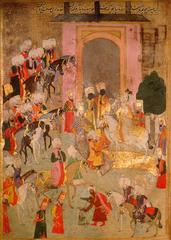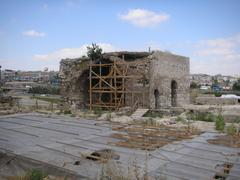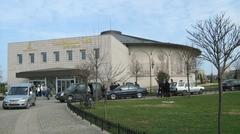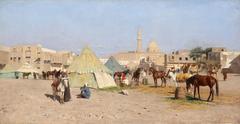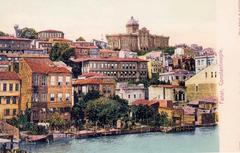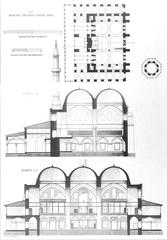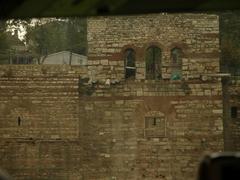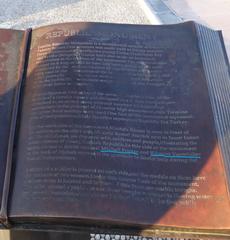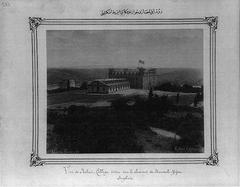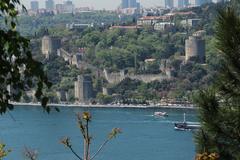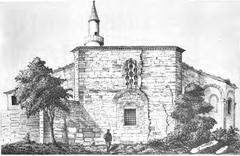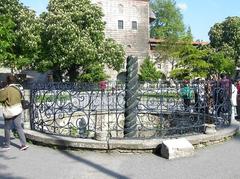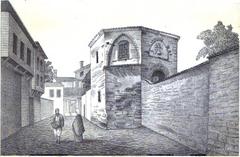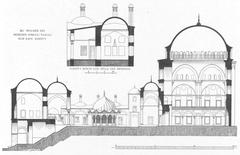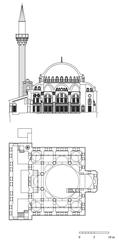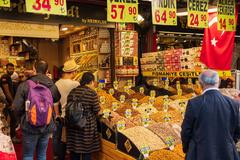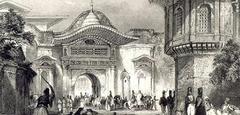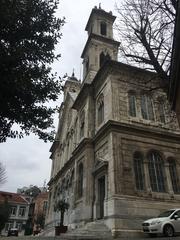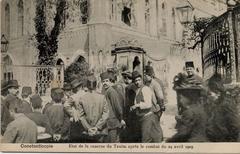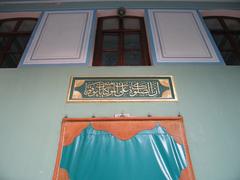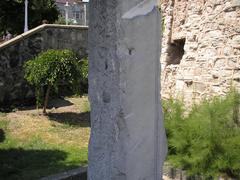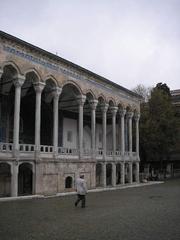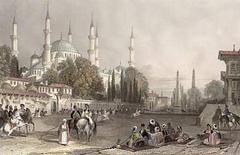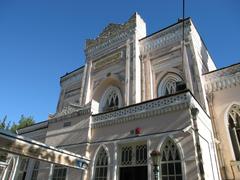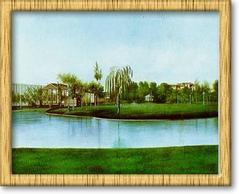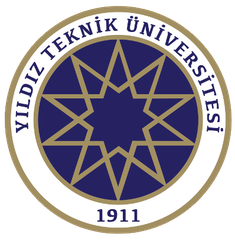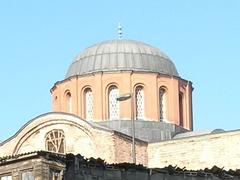
Eyüp Sultan Mosque Istanbul: Visiting Hours, Tickets, and Historical Sites Guide
Date: 14/06/2025
Introduction to Eyüp Sultan Mosque
Situated on the northern shore of Istanbul’s Golden Horn, the Eyüp Sultan Mosque is one of Turkey’s most spiritually revered and historically significant landmarks. Named after Abu Ayyub al-Ansari—a companion and standard-bearer of the Prophet Muhammad—the mosque is a center of Islamic tradition, Ottoman imperial heritage, and architectural innovation. Since its foundation soon after the Ottoman conquest of Constantinople in 1453, the mosque has served as a key pilgrimage site, hosted important Ottoman ceremonial events, and stands as a vibrant hub for worship and cultural continuity.
This guide provides comprehensive information on Eyüp Sultan Mosque visiting hours, ticketing (admission is always free), accessibility, architectural highlights, and practical travel tips. Whether you seek spiritual reflection, historical insight, or architectural appreciation, this guide will help you engage meaningfully with one of Istanbul’s most treasured historic sites (Istanbul Tour Studio; istanbul.com; Daily Sabah).
Contents
- Historical Background
- Architectural Highlights
- The Tomb of Abu Ayyub al-Ansari
- Visitor Information: Hours, Tickets, Accessibility
- Practical Tips and Cultural Etiquette
- Surroundings and Nearby Attractions
- Special Events and Pilgrimage Experience
- Frequently Asked Questions (FAQ)
- Conclusion and Further Resources
Historical Background
Origins and Early Significance
Eyüp Sultan Mosque (Eyüp Sultan Camii) is built at the believed burial site of Abu Ayyub al-Ansari, a revered companion of the Prophet Muhammad. Abu Ayyub died during the first Arab siege of Constantinople (674–678 CE), and his tomb became a symbol of Islamic aspiration and sanctity in the city that would later become Istanbul (Istanbul Tour Studio).
Ottoman Foundation and Construction
After the Ottoman conquest in 1453, Sultan Mehmed II commissioned the mosque at Abu Ayyub’s tomb in 1458. This act signified Ottoman legitimacy and spiritual continuity with early Islam. The original complex included a mosque, mausoleum (türbe), religious school, bathhouse, and auxiliary buildings, and quickly evolved into a major pilgrimage destination.
Architectural Evolution and Restoration
The mosque underwent several restorations after earthquakes and was completely rebuilt between 1798 and 1800 during Sultan Selim III’s reign. The present structure exhibits a harmonious blend of classical Ottoman and Ottoman Baroque architectural styles, with a grand central dome (17.5 meters in diameter), ornate tilework, and richly decorated interiors (Istanbul Tour Studio).
Role in Ottoman Ceremonial Life
Eyüp Sultan Mosque played a pivotal role in Ottoman society, most notably as the site of the sword-girding (kılıç kuşanma) ceremony, where new sultans were symbolically invested with the Sword of Osman. This ceremony underscored the mosque’s significance as a bridge between spiritual authority and political power.
Religious and Cultural Continuity
Today, Eyüp Sultan Mosque remains a vibrant center for worship, especially during Ramadan, Fridays, and major Islamic festivals. The surrounding Eyüp district maintains a traditional atmosphere, further enriched by the historic Eyüp Cemetery, where many Ottoman dignitaries and Sufi saints are buried. The area is also home to the popular Pierre Loti Café, offering panoramic views of the Golden Horn (Istanbul Tour Studio).
Architectural Highlights
Site Layout
The mosque complex features expansive courtyards shaded by ancient sycamore and cypress trees. The site includes the main prayer hall, mausoleum, fountains, and social facilities, with the historic Eyüp Cemetery bordering the grounds (istanbul.com).
Exterior Features
- Facade and Materials: The mosque is constructed from pale honey-colored stone, with a main entrance adorned with Baroque decorative motifs and finely carved stonework (istanbulprivatetour.net).
- Domes and Minarets: The central dome is flanked by two half-domes and surrounded by an array of smaller domes. Twin minarets, renovated during the 18th and 19th centuries, rise elegantly beside the mosque (istanbul.com).
- Courtyards and Fountains: Shaded courtyards and four Baroque-style fountains create a tranquil and spiritual ambiance, with the presence of pigeons and cats enhancing the peaceful setting (istanbultouristpass.com).
Interior Design
- Prayer Hall: Illuminated by large chandeliers and stained-glass windows, the prayer hall’s serene color palette complements its intricate details (istanbulprivatetour.net).
- Mihrab and Minbar: These are masterpieces of Ottoman Baroque design, with elaborate foliate and shell motifs (en.wikipedia.org).
- Calligraphy and Tiles: Exquisite Ottoman calligraphy and vibrant Iznik tiles enhance the spiritual and artistic atmosphere (turkeythings.com).
- Columns and Materials: White marble columns, some bound with brass, offer a restrained elegance that contrasts with the ornate Baroque motifs (en.wikipedia.org).
Architectural Style
Eyüp Sultan Mosque is unique for its synthesis of classical Ottoman and Baroque elements, reflecting the evolution of Ottoman architecture in the 18th and 19th centuries. Unlike the vast scale of the Blue Mosque, Eyüp Sultan is noted for its intimate proportions and detailed ornamentation (istanbulprivatetour.net).
The Tomb of Abu Ayyub al-Ansari
The türbe (mausoleum) of Abu Ayyub al-Ansari is the spiritual heart of the mosque complex. Richly decorated with tile panels from various periods, the tomb draws pilgrims year-round, especially during Ramadan and religious festivals (turkiyeworld.com; istanbul.tips).
Visitor Information
Visiting Hours and Tickets
- General Visiting Hours: Daily from 9:00 AM to 6:00 PM. The tomb of Abu Ayyub al-Ansari is open Tuesday to Sunday, 9:30 AM–4:30 PM.
- Prayer Times: Non-Muslim visitors may be restricted from entering during the five daily prayers; check the current Istanbul prayer schedule before your visit.
- Entry Fee: Admission is always free. Donations are welcomed to support the mosque’s maintenance (istanbul.com).
Accessibility
The mosque complex is wheelchair accessible, with ramps leading to the main prayer hall and courtyards. Some areas, such as the cemetery hill, may be difficult to navigate for those with limited mobility. Assistance can be requested onsite.
Travel and Transport
- Public Transport: Eyüp Sultan Mosque is accessible by tram (T4 line, Eyüp station), bus, ferry (Üsküdar-Haliç line), and taxi from central Istanbul (Daily Sabah).
- Nearby Attractions: Don’t miss the Eyüp Cemetery, Pierre Loti Café, Golden Horn waterfront, and the Rahmi M. Koç Museum.
Practical Tips and Cultural Etiquette
- Dress Code: Modest clothing is required. Women should cover their hair, arms, and legs with a scarf and long skirt/trousers; men should avoid shorts and sleeveless tops. Headscarves are provided at the entrance if needed (Fodor’s).
- Shoes: Remove shoes before entering the mosque; bring a bag to carry them.
- Photography: Allowed in most areas, but avoid photographing worshippers, especially during prayers. Remain discreet and respectful.
- Behavior: Keep noise to a minimum, avoid eating or using mobile phones inside, and respect prayer times and funeral ceremonies.
Special Events and Pilgrimage Experience
The mosque is especially lively during Ramadan, with special nightly prayers (Tarawih), community iftars, and the Night of Power (Kadir Gecesi) attracting large crowds. The mosque is also a center for circumcision (sünnet) ceremonies and other family milestones. Feeding pigeons in the meydan (square) is a cherished ritual, considered an act of devotion (Daily Sabah).
The Ziyara Ritual: Pilgrims recite the Yasin chapter of the Qur’an at Abu Ayyub’s tomb, seeking blessings and spiritual intercession. Sharing Turkish delight (lokum) among visitors is a common gesture of gratitude and camaraderie.
Surroundings and Nearby Attractions
- Eyüp Cemetery: Historic resting place for Ottoman dignitaries, poets, and Sufi saints.
- Pierre Loti Café: Famous for its panoramic views of the Golden Horn, accessible via a funicular or a scenic walk through the cemetery.
- Local Markets: The approach to the mosque features lively markets selling religious souvenirs, prayer beads, scarves, and Turkish delight.
Frequently Asked Questions (FAQ)
Q: What are the Eyüp Sultan Mosque visiting hours?
A: Generally 9:00 AM to 6:00 PM daily, except during the five daily prayer times. The tomb is open Tuesday to Sunday, 9:30 AM–4:30 PM.
Q: Is there an entrance fee?
A: No, entry is free. Donations are appreciated.
Q: Are guided tours available?
A: Yes, through local operators and the Audiala app.
Q: Is the mosque accessible for people with disabilities?
A: Yes, main areas are wheelchair accessible.
Q: What is the dress code?
A: Modest clothing; women should cover their hair, arms, and legs. Scarves are available at the entrance.
Q: How do I get there?
A: By tram (T4, Eyüp station), bus, ferry, or taxi from central Istanbul.
Conclusion and Call to Action
Eyüp Sultan Mosque stands as a remarkable intersection of spiritual devotion, Ottoman history, and architectural splendor. Its origins tied to Abu Ayyub al-Ansari and its ceremonial role in Ottoman life make it a living testament to Istanbul’s layered heritage. Whether you seek spiritual reflection, historical immersion, or the beauty of Ottoman-Baroque architecture, Eyüp Sultan Mosque is an essential stop on any Istanbul itinerary.
Plan your visit by checking current visiting hours and prayer schedules, and consider joining a guided tour for deeper insight. Respect local customs, enjoy the peaceful ambiance, and explore the surrounding district for a richer experience. For ongoing updates and personalized travel guides, download the Audiala app and follow our social media channels.
Images
Alt tags: “Eyüp Sultan Mosque visiting hours”, “Istanbul historical sites”, “Eyüp Sultan Mosque tickets”.
Sources and Further Reading
- Eyüp Sultan Mosque Visiting Hours, Tickets, and Historical Significance in Istanbul, 2024, Istanbul Tour Studio (Istanbul Tour Studio)
- Eyüp Sultan Mosque Istanbul: Visiting Hours, Tickets & Historical Significance, 2024, istanbul.com (istanbul.com)
- Eyüp Sultan Mosque in Istanbul: Architecture, History & Visitor Guide, 2024, istanbul.com (istanbul.com)
- Eyüp Sultan Mosque Visiting Hours, Tickets, and Insider Tips for Istanbul Historical Sites, 2024, Daily Sabah (Daily Sabah)

